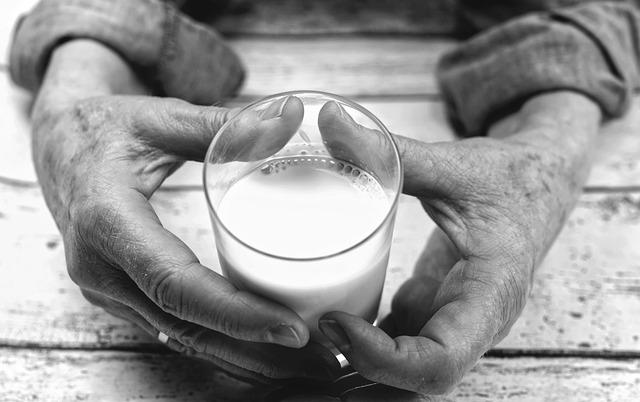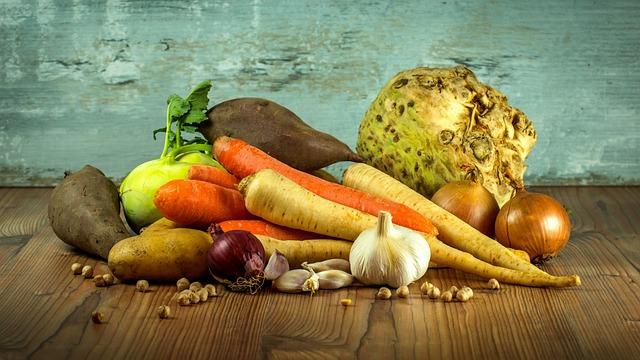In the world of health and nutrition, few topics have sparked as much debate as the role of milk in maintaining bone health. For generations, milk has been heralded as the quintessential elixir for strong bones, its calcium-rich profile touted as a cornerstone of a balanced diet. Yet, in recent years, this long-standing belief has come under scrutiny, with experts questioning whether milk truly lives up to its reputation. As we navigate through a labyrinth of scientific studies, dietary guidelines, and cultural beliefs, the question arises: should you drink milk to strengthen your bones? This article delves into the complexities of this age-old query, unraveling the myths and facts surrounding milk’s role in bone health, and offering a fresh perspective on what it truly takes to build a robust skeletal framework.
Milk and Bone Health Exploring the Connection
For generations, the notion that milk is the cornerstone of strong bones has been ingrained in our dietary beliefs. Rich in calcium and fortified with vitamin D, milk seems like the ideal candidate to bolster bone health. These nutrients are vital for bone formation and maintenance, as calcium is a major component of bone tissue, while vitamin D enhances calcium absorption. However, the narrative is more nuanced than simply drinking a glass of milk a day. As we dive deeper into nutritional science, the spotlight broadens to include other factors such as overall diet, lifestyle, and even genetic predispositions that play significant roles in bone health.
- Calcium and Vitamin D: These are essential for bone density and strength.
- Protein: Adequate protein intake is crucial for maintaining bone structure.
- Magnesium and Potassium: Often overlooked, these minerals are important for bone health.
- Exercise: Weight-bearing activities stimulate bone growth and strength.
Incorporating a variety of sources for these nutrients, such as leafy greens, nuts, seeds, and fish, alongside dairy products, might offer a more balanced approach. Ultimately, while milk can be a beneficial part of a bone-strengthening diet, it’s not the sole answer. A holistic approach, considering multiple nutritional sources and lifestyle factors, might be the best strategy for maintaining healthy bones throughout life.

The Science Behind Calcium and Vitamin D in Milk
The dynamic duo of calcium and vitamin D plays a crucial role in maintaining bone health, and milk is often touted as a prime source of these nutrients. Calcium is a fundamental building block for bone tissue, contributing to bone density and strength. Without adequate calcium, bones can become brittle and prone to fractures. However, calcium doesn’t work alone. Vitamin D is essential for facilitating calcium absorption in the intestines, ensuring that the body can effectively utilize the calcium consumed.
Milk provides a natural combination of these nutrients, making it a convenient option for supporting bone health. Here are some key points to consider:
- Calcium Content: An 8-ounce glass of milk contains approximately 300 mg of calcium, fulfilling about 30% of the daily recommended intake for adults.
- Vitamin D Fortification: Many milk products are fortified with vitamin D, enhancing its bone-strengthening benefits.
- Balanced Nutrient Profile: In addition to calcium and vitamin D, milk contains other nutrients like protein and phosphorus, which also contribute to bone health.
While milk is a traditional choice for those looking to bolster their bone health, it’s important to consider dietary needs and preferences, as there are alternative sources of calcium and vitamin D available for those who may be lactose intolerant or follow a plant-based diet.

Alternatives to Milk for Stronger Bones
While milk has long been touted as the go-to source for bone health, there are a variety of other options available that can help you maintain strong bones without relying on dairy. Leafy greens, such as kale and spinach, are rich in calcium and also provide a host of other nutrients beneficial for overall health. Nuts and seeds, particularly almonds and sesame seeds, are excellent sources of calcium and can easily be incorporated into your daily diet through snacks or as toppings on your favorite dishes.
Fortified plant-based milks, like almond, soy, and oat milk, often contain added calcium and vitamin D, making them a great alternative for those who are lactose intolerant or choose to avoid dairy. Tofu, especially when made with calcium sulfate, offers another non-dairy option that is both versatile and nutritious. Additionally, fish with edible bones, such as sardines and canned salmon, provide a substantial amount of calcium and are a delicious way to support bone health. Embracing these alternatives not only diversifies your diet but also ensures that you are getting a comprehensive array of nutrients essential for maintaining strong and healthy bones.

Expert Recommendations for Optimal Bone Health
When it comes to maintaining strong and healthy bones, experts often suggest a holistic approach. Here are some key recommendations that are commonly endorsed by nutritionists and health professionals:
- Calcium-Rich Foods: While milk is a well-known source, consider diversifying your intake with other calcium-rich foods like leafy greens, almonds, and fortified plant-based milks.
- Vitamin D: Essential for calcium absorption, ensure you’re getting enough through sunlight exposure, supplements, or foods like fatty fish and egg yolks.
- Weight-Bearing Exercises: Activities such as walking, jogging, and resistance training help stimulate bone growth and improve bone density.
- Balanced Diet: Include a variety of nutrients like magnesium, potassium, and vitamin K, which are vital for bone health.
By integrating these practices into your daily routine, you can work towards achieving optimal bone health. It’s always a good idea to consult with a healthcare professional to tailor these recommendations to your individual needs.
Closing Remarks
In the quest for robust bones and a resilient body, the glass of milk sits as a symbol of both tradition and debate. As we swirl through the complexities of nutrition science and personal health choices, the decision to drink milk for bone strength remains uniquely personal. It intertwines with cultural narratives, dietary needs, and individual preferences. While some find solace in the creamy embrace of milk, others may seek strength through alternative sources, rich in calcium and fortified with the essence of wellness. Ultimately, whether milk becomes your chosen elixir or simply a part of a broader dietary tapestry, the journey towards strong bones is paved with diverse options. Each sip, each choice, leads us to a deeper understanding of our bodies and the nourishment they crave. As the story of milk and bones continues to unfold, may your path be informed, balanced, and tailored to the rhythm of your life.




